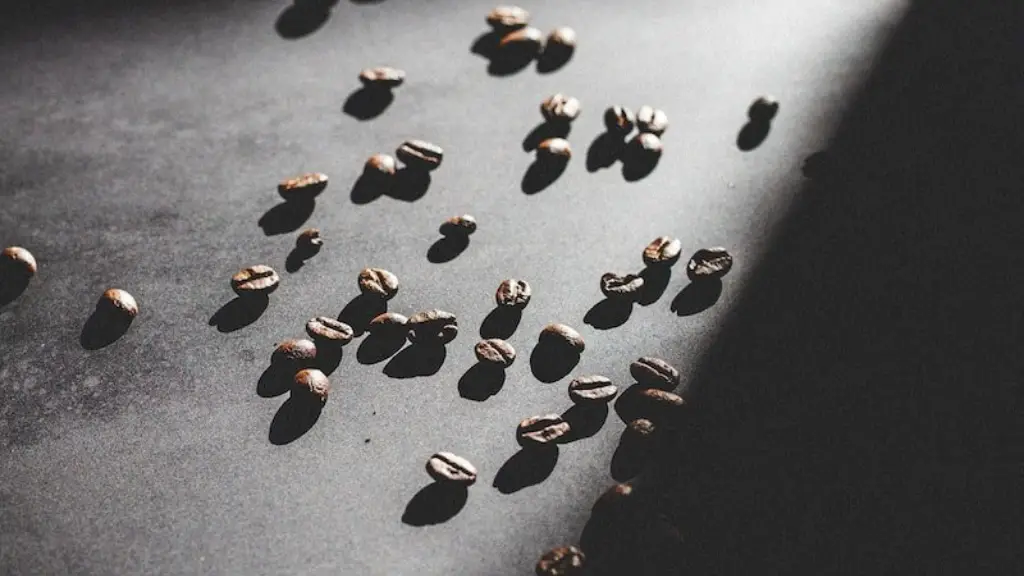It’s an age-old debate that many expecting mothers think of – does drinking coffee every day put the fetus at risk? There’s no one size fits all singular answer, but it’s important to look at the facts and analysis to better understand the potential consequences.
Caffeine has been around since the 16th century, but the popularity of the beverage exploded in the 18th century. A variety of forms have been developed to consume it, including in tea, cocoa and coffee. It’s served hot, cold and now even in ice cream.
Caffeine is a stimulant, and it has been linked with particular bodily functions, including the heart rate and breathing rate. It increases alertness and can improve focus and concentration. While the amount of caffeine each person needs varies, the Food and Drug Administration recommends an upper limit of 400mg of caffeine a day.
When it comes to pregnancy, there may be risks associated with regular caffeine consumption. It can be difficult to quantify exactly how much caffeine is safe since it is not consumed in a single dose. It is especially important for pregnant woman to stay within the recommended FDA limits, considering the many changes in the body and the developing fetus.
Medical experts recommend that pregnant women should drink no more than 200mg of caffeine in a day – equivalent to one cup of coffee or two cups of tea. Consuming a large amount of caffeine can increase the mother’s risk for having a miscarriage or preterm labor, and it can cause the baby to be born with a low birth weight.
Caffeine also crosses the placenta, which means that it affects the baby as well. There is some evidence to suggest that drinking a lot of caffeine increases the risk of abnormal fetal heart rhythms and can lead to extreme fussiness in the baby.
There are some things that can be done to reduce the risks of the baby’s exposure to the caffeine while still allowing the mother to enjoy coffee. Some experts suggest that pregnant women should avoid coffee altogether, while others recommend that they drink it in moderation and limit their intake to one cup of coffee a day.
It is important to remember to always check with a healthcare provider before consuming any caffeine during pregnancy, as all caffeine intake can vary from person to person. And, of course, if pregnant women are concerned about the caffeine consumption, they should talk with their doctors.
Is Decaf Coffee Ok?
Another option for pregnant women looking to still enjoy coffee is to drink decaffeinated coffee. Decaf coffee largely contains less than 10mg of caffeine, making it an alternative for those looking to limit their caffeine consumption.
However, it is evident that the decaffeination process can leave many oils and other residues from the coffee, which may still have potential health effects of their own. Anthropologists have suggested that the residuals may still be enough to give malnourished mothers a nutritional boost from their coffee drinking habits.
Yet, there are also other potential health concerns associated with decaffeinated coffee. Numerous studies highlighted the potential for higher levels of mold toxins, mycotoxins, and aldehydes found in decaf coffee.
In general, health experts advise that pregnant women be cautious of their intake of decaf coffee, and they should be sure to purchase coffee that is labeled “Swiss Water Process” or “solvent-free.” While decaf coffee may be a better option than regular coffee, it is still advisable to use caution to ensure safety.
Indeed, many studies have not always proven beneficial outcomes from decaf coffee, and most experts urge pregnant women to avoid it as much as possible. It is also important to note that decaf coffee may still contain a significant amount of caffeine, depending on the type.
Consequences of Uncontrolled Caffeine Consumption
For pregnant women who drink too much caffeine, the risks can be serious. Recent research has suggested that pregnant women who consume more than 200mg of caffeine a day may be at an increased risk for both low birth weight and premature birth.
Low birth weight babies are more likely to require medical intervention such as intensive care and have an increased risk of future health problems. Likewise, babies who are born prematurely may also have an increased risk of future health concerns.
Another possible consequence of excessive caffeine during pregnancy is high blood pressure. Although it is still unclear the exact biological mechanism through which caffeine negatively affects high blood pressure, some studies have suggested that it is more common among those who consume high amounts of caffeine.
High blood pressure can put stress on the mother, and the baby may experience lower oxygen levels and other difficulties. Finally, there is some evidence to suggest that the fetus is particularly sensitive to the effects of caffeine.
Can Caffeine Substitutes Work?
One of the best ways for pregnant women to reduce the potential risk associated with caffeine intake is to substitute in low or no-caffeine alternatives. Many women who enjoy coffee simply switch to herbal teas or decaffeinated coffee and tea.
Herbal teas provide a good alternative to coffee, especially those made from chamomile, red raspberry, ginger, lemon balm, peppermint, and lemon verbena. Also, energy drinks can make excellent alternatives to soda.
Many of these energy drinks contain caffeine, but there are also ones that do not. For example, Gatorade and Vitamin Water have no caffeine in them and can provide a caffeine-free option for those looking to still enjoy energy drinks.
It is also important to remember that many foods contain traces of caffeine, and these should be taken into account when counting your daily consumption. For example, chocolate, ice cream, and even certain spices can contain small amounts of caffeine.
Exercising Moderation and Monitoring Intake
Since caffeine intake can be difficult to monitor, pregnant women should keep a close watch on their daily consumption. One of the best advice for those looking to limit their caffeine consumption is to exercise moderation. This means limiting the amount of caffeine per day and being aware of when the caffeine is consumed.
Some healthcare providers suggest that pregnant women should avoid drinking coffee too late in the day, as it can make it difficult to get to sleep. It is also important to note that caffeine can stay in the system for several hours, so pregnant women should avoid consuming caffeine at least five hours before bedtime.
Thus, the best advice for pregnant women is to monitor and be mindful of their caffeine consumption to ensure the health of both mother and baby. Moderation is key in treating this debate as there is no one-size-fits-all solution.
Impact of Caffeine on Behavior and Mood
An additional important consideration when discussing caffeine and pregnancy is the effect that it can have on mood and behavior. Caffeine is a stimulant, and it works to increase alertness, focus and concentration. It can also give a person an energy boost.
For pregnant women, however, caffeine can actually have the opposite effect. Instead of energy, many of these women may experience jitters, headaches, insomnia, and irritability. Some research has even suggested that excessive caffeine consumption can increase the risk of depression.
For some pregnant women, the risks outweigh the benefits, and it may be better to simply steer clear of the beverage altogether. If a woman still wishes to enjoy caffeine, it is essential to monitor consumption, and to always check with a healthcare provider before drinking coffee.
Coffee Alternatives for Pregnant Women
Thankfully, there are many alternatives available for pregnant women who still want to enjoy the taste of coffee without the extra caffeine. Products such as decaffeinated coffee, herbal teas, and energy drinks provide good options for those still seeking an occasional pick-me-up.
Also, some healthy snacks can provide a great source of energy. Fruits, nuts, yogurt, and smoothies can provide quick energy boosts without the adverse effects of caffeine. And, of course, getting plenty of rest and exercise can provide a more natural and balanced way of increasing energy.
Ultimately, it is important to have an informed conversation with a healthcare provider prior to changing one’s habits regarding caffeine intake, as every body is different and experiences can vary. However, it is also effectively permissible to enjoy coffee in moderation.





